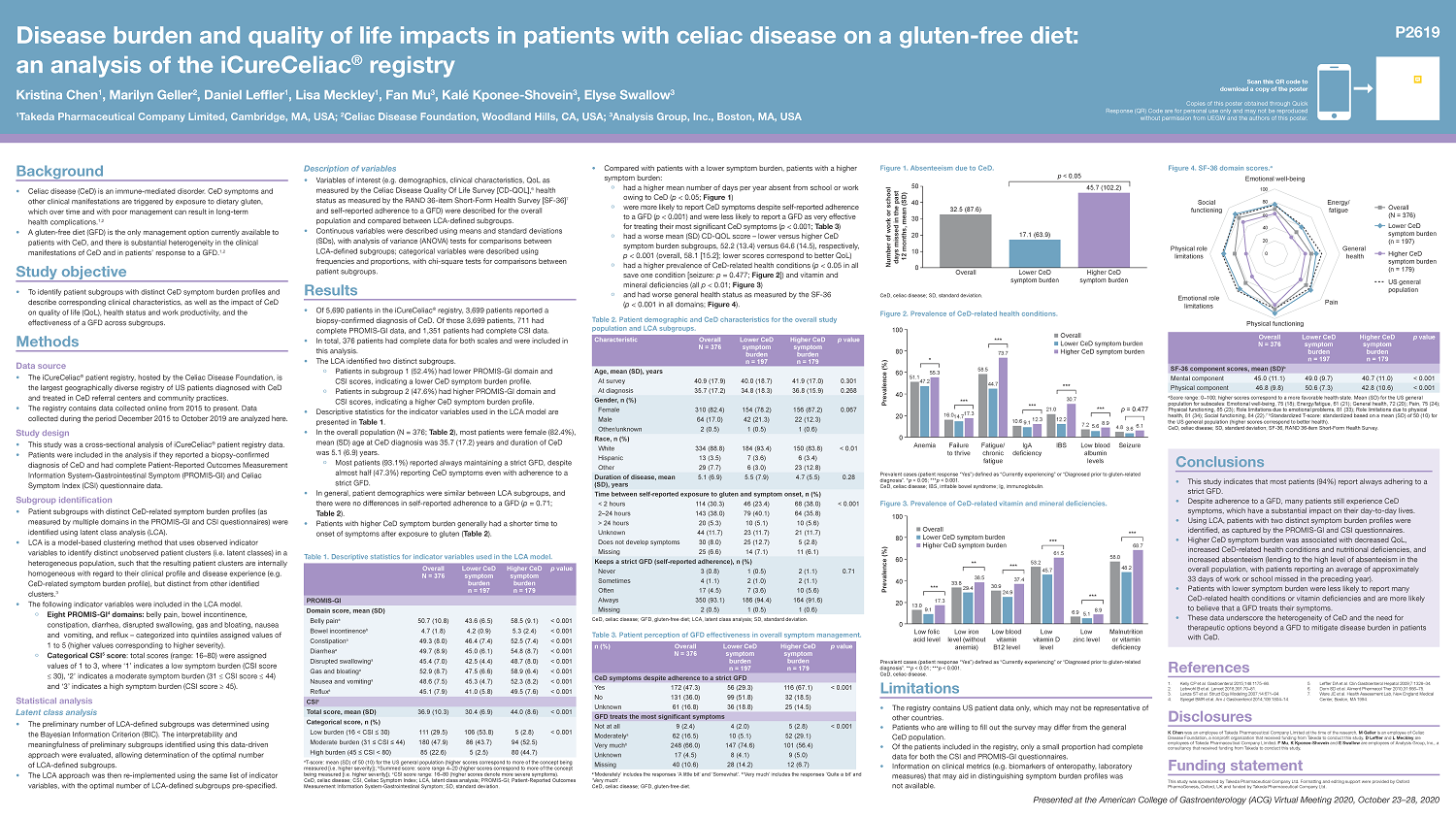In follow-up to their May 2019 Digestive Disease Week presentation, researchers from Takeda Pharmaceuticals and the Celiac Disease Foundation presented a study entitled, Disease burden and quality of life impacts in patients with celiac disease on a gluten-free diet: an analysis of the iCureCeliac® registry at the American College of Gastroenterology 2020 Virtual Annual Scientific Meeting and the United European Gastroenterology Week Virtual 2020 Congress.
382 patients with self-reported biopsy-confirmed celiac disease who completed the Patient-Reported Outcomes Measurement Information System-Gastrointestinal Symptom Scales (PROMIS-GI), Celiac Symptom Index (CSI), Celiac Disease Quality of Life Measure (CD-QOL), and the 36-Item Short Form Health Survey (SF-36) in the iCureCeliac® patient registry were evaluated. Most patients (93.2%) reported “always” keeping a strict gluten-free diet, but 46.9% still reported symptoms. Two patient subgroups were identified: those with a lower (180) vs. a higher (202) symptom burden. The demographics and celiac disease characteristics were similar between the two groups, with no difference reported in gluten-free diet adherence. Compared with patients with a lower symptom burden, those with a higher burden were less likely to report a gluten-free diet effective for them, had a worse quality of life and general health status, and had more yearly school or work absences due to gluten exposure. This was despite similar gluten-free diet adherence to those with a lower symptom burden. The study authors concluded that despite gluten-free diet adherence, many patients with celiac disease still have symptoms that substantially impact their lives. This was seen for all patients but was most pronounced for those with higher symptom burden, highlighting the heterogeneity of celiac disease burden and a need for further therapies beyond a gluten-free diet.
Would you like to participate in celiac disease research? Add your data to our iCureCeliac® patient registry today. iCureCeliac® is a free online portal for patients, or their caregivers, to provide critical insights into life with celiac disease. Your participation will help create better diagnostic tools and treatments for cross-contact and gluten consumption, governmental policy changes, and access to new and innovative clinical trials nationwide, which may, one day, cure celiac disease.

